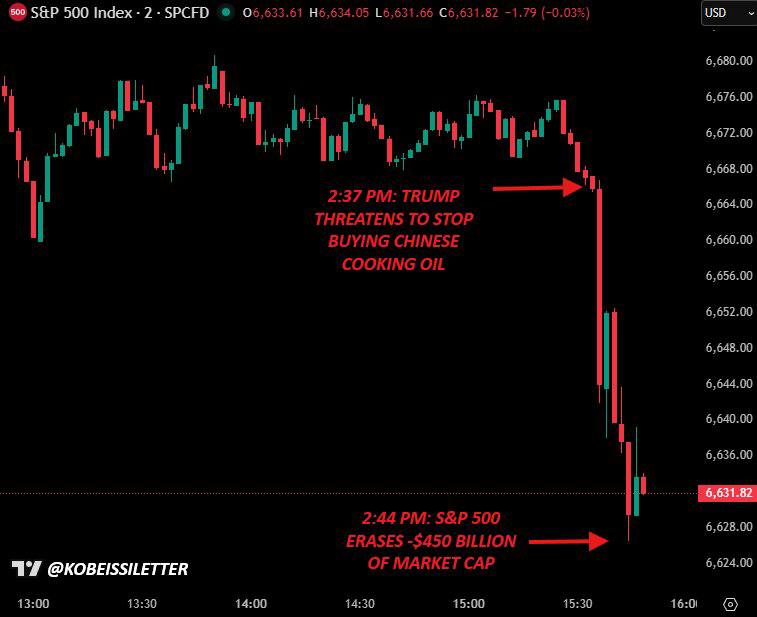On October 14, 2025, U.S. President Donald Trump accused China of committing an “act of economic hostility” by refusing to purchase American soybeans. In a post on Truth Social, Trump said Beijing’s decision creates hardships for U.S. farmers and leaves Washington with no choice but to consider retaliatory measures. The U.S. administration is reportedly studying the possibility of restricting imports of cooking oil and other goods from China.
Trump emphasized that the United States has “sufficient capacity for domestic cooking oil production” and does not depend on imports from China. His statement triggered an immediate market reaction: within just seven minutes, U.S. market capitalization dropped by $450 bln.

The conflict is deepening amid shifting global trade flows in oilseed products. China, which imported $12.8 bln worth of U.S. soybeans in 2024, is now increasingly turning to Brazilian and Argentine supplies, avoiding contracts with American exporters.
In 2024, China exported a record 2.951 mln tons of used cooking oil, with 43% of it shipped to the United States—mainly for biofuel production. These shipments could now face restrictions under Washington’s potential new trade measures. Analysts warn that such a move could significantly affect the rapidly expanding U.S. biofuel industry.
Meanwhile, the trade confrontation between the two nations continues to escalate. The U.S. has already threatened to impose 100% tariffs on Chinese imports starting November 1 in response to Beijing’s decision to limit exports of rare earth elements. China, in turn, accused Washington of “double standards” and declared it “not afraid of a trade war.” Further escalation, experts caution, could disrupt global supply chains and hit the U.S. defense and high-tech industries.




